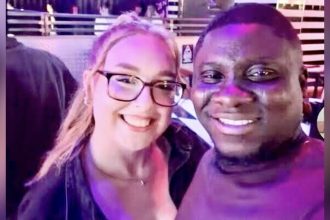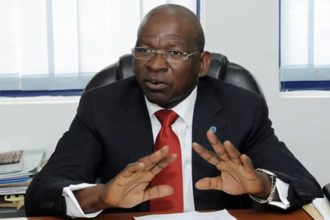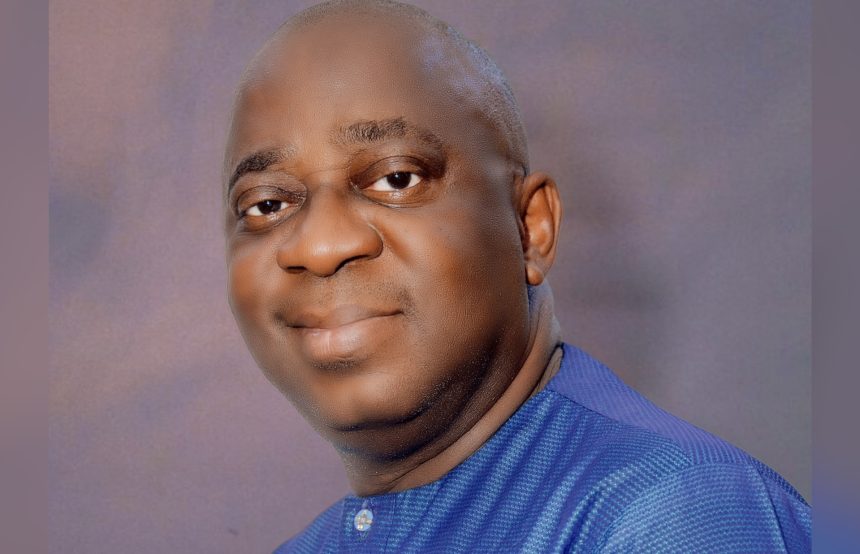Dr Oluseye Kehinde, accomplished veteran journalist and the Publisher/Editor-In-Chief of the City People Media Group clocks 60 today., April 24, 2025. In this interview with CityScoop NG, he opened up about his life, journey in journalism and other intimate topics.
How does it feel to be 60? Do you have any special feeling?
Well, I don’t think there is any special feeling. Just like you said when I got here; many people keep saying the same thing, that I don’t look like someone who is 60 or I look younger than my age and all that. I don’t know what they see or how they feel a 60-year old should look though. But all I know is that I am still the same old Seye Kehinde. I still feel feel the same, I don’t feel any difference. I am still out there running around, looking for stories, meeting people, interviewing people and doing my thing. But like I have been saying to people, I feel it just crept in on me, if I may put it that way. Because I just take every birthday that comes like that, celebrate it and move on. It didn’t really set in that I would be 60 soon and all of that until I just realized that oh, 60 is the age and it’s coming this year. And I am taking it in good faith (laughs).
So, you don’t feel any difference?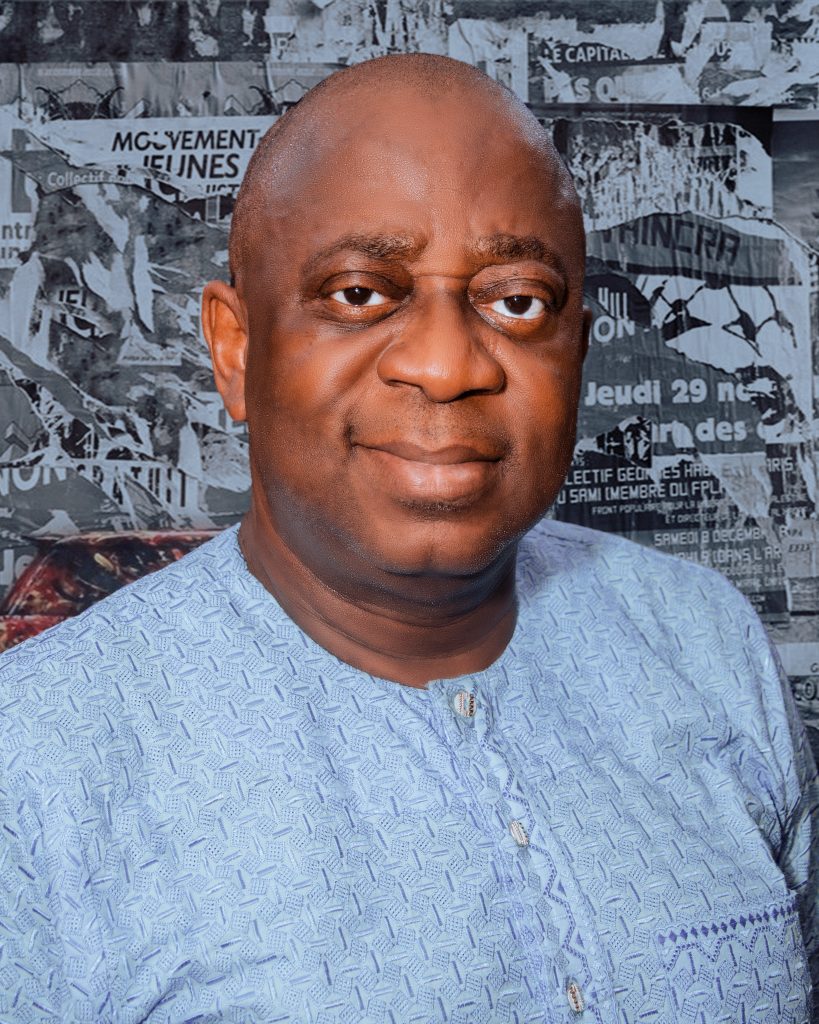 I don’t feel anything different. Like today I have been out, I have done one or two interviews in the morning, and all that. I think it’s all because this is something I have been doing doing all these years. I enjoy doing it and I honestly don’t know anything else I would have been doing apart from this job. And basically for me, it has been so exciting.
I don’t feel anything different. Like today I have been out, I have done one or two interviews in the morning, and all that. I think it’s all because this is something I have been doing doing all these years. I enjoy doing it and I honestly don’t know anything else I would have been doing apart from this job. And basically for me, it has been so exciting.
For instance, at 60, people in public service would have been thinking about retirement. So are you also thinking about when you will be retiring from the job?
You know I actually thought about this a few weeks back. That oh, you are going to be 60, if you’re in the public sector you would have been planning your exit from civil service by now. So, at that point it actually dawned more on me that it is actually a landmark age. It is actually a major point in one’s career and all that. That at 60 you should be winding down and all of that. But then, for me when I look at the likes of the Aliko Dangotes, they are still hustling at over 60. Even a Mike Adenuga at his age is still out there running his businesses. So, if these guys are still hustling at their age, why would you at 60 want to slow down? That’s from my own mentality really. I still look out there and see everyone running around. And of course, the society we live in like we earlier discussed, is not such where you can say oh, I have come to a point, let me relax. What will you actually relax on when you’re are not certain what tomorrow foretells. I ask myself, can one really relax in a country where you fuel your car at N60,000? Where you are not certain what the prices of stuffs would be tomorrow? Nigeria is not a place where you can really plan. Nothing is certain. You can wake up tomorrow and hear that there’s a strike which can go on for a week and everything you got planned is affected. It may even be easy for people in the public sector to plan their exit from service, but not so for someone in the private sector. Economic policies of successive governments have really impacted people in the private sector in such a way that you can’t really plan. You have to keep looking for money to run and sustain your business, pay the personnel you employ to do it, and all that. So, I just said there is no point deceiving myself. That I have to focus on what I am doing and still keep doing it. Basically, that’s my attitude to it.
You are one of the most hardworking human beings on the surface of the earth. What influences your hustling spirit, what drives you and what are you aiming to achieve by working so hard?
I think it has a lot to do with my upbringing. It has to do with the fact that I have looked at the Nigerian situation and I have realized that look here, you just have to put everything you have into whatever you are doing. Also, I don’t see what I do as a job. I just see it as a passion I see it as doing something like playing golf or tennis; something you just do and you derive joy in it. So, that was mentality. I have also often told people that journalism is so tough, that if you don’t convince yourself as to how tough it is, the punishment might well be as tough as finding yourself on the Third Mainland Bridge at 1am and not knowing where to go, asking yourself what am I really doing here, whether it’s to go towards the island or the mainland. So, that’s why I have alway said that you have to see it as a passion and not work. The moment you see it as a work, you get dissuaded, at times discouraged and all that. The job may look easy on the eye to those outside, but hey, it’s a lot of work you have to do out here. The kind of things you get done easily abroad, you can’t get by them easily in Nigeria. Not until recent years when social media came that you could get a lot of things done. Before now, the physical requirements were enormous. So, from the onset, I told myself that I was going into this with my all. I go around, I do interviews, I transcribe them and I don’t see all that as a problem. When I see how other people go about it; they get scared of interviews because of the transcribing and I feel maybe I quickly addressed all that at the early stages. I don’t see doing my job as a problem or something that will stress me. I think it’s all about the attitude you put to it. You are also an example. I mean you could have said oh I am tired of this profession or job and you want to go and do something else and all that. But you are still doing it, you are still handling it yourself. That’s just it. Also, some people have said that there is a particular spirit that gets into you once you chose to be a journalist, especially if you desire to do it the proper way. So I guess that’s what explains it.
Deriving joy or pleasure from working may sound strange to a lot of people. I mean who enjoys going through stress? What sort of achievement or result can one really get from working that will bring such pleasure you spoke about? 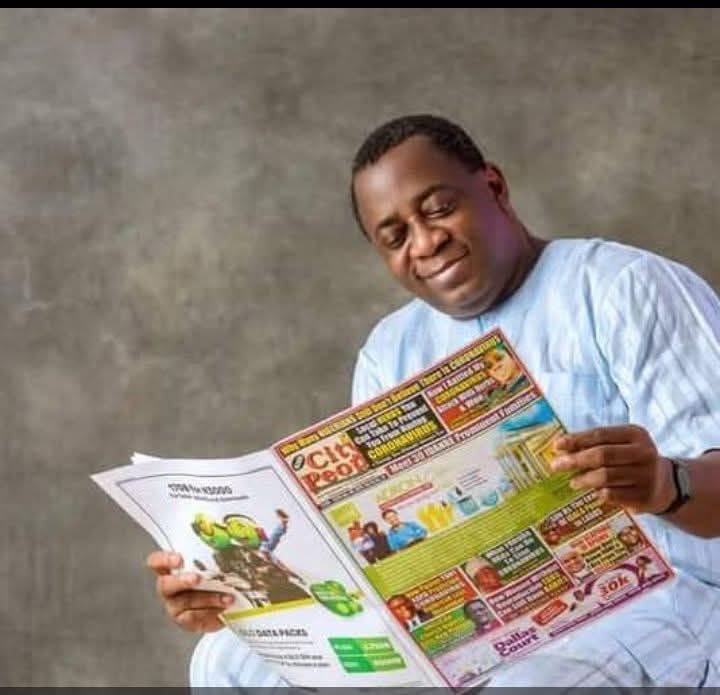 I said it earlier that you have to be passionate about what you do. The moment you decide that you want to be passionate about what you do, you will enjoy doing it. I reconciled that within me years ago. That for me to do this; because I know it’s difficult, I have to do it with passion. I think it’s just advisable that you must do what you know you enjoy doing. Even if you don’t have it from the onset, you can develop passion for it. In my own case, I developed the passion. I said to myself that this is what I want to do for a living. And I am not doing it to get another job elsewhere. I want to do it and do it well. And of course, those who influenced me the most in my early days in the media; the likes of the Late Dele Giwa, Ray Ekpu, Dan Agbese, Yakubu Mohammed and those guys who started off Newswatch. Because for me then, I could see that if you do journalism well, you can actually live well. Initially I was also of the notion that journalism was just a by-the-way thing, not a job that can put food on your table. But when I saw their experiment, I had a clearer picture. In 1985 when the universities were closed down for 9 months, I was lucky enough to get a job at Newswatch as a researcher. During my time there, I was convinced that if these young men (at that time) can do well, live well off what they are doing, it means journalism is actually a good profession. And that was when I decided that come rain, come shine, I have to be a journalist.
I said it earlier that you have to be passionate about what you do. The moment you decide that you want to be passionate about what you do, you will enjoy doing it. I reconciled that within me years ago. That for me to do this; because I know it’s difficult, I have to do it with passion. I think it’s just advisable that you must do what you know you enjoy doing. Even if you don’t have it from the onset, you can develop passion for it. In my own case, I developed the passion. I said to myself that this is what I want to do for a living. And I am not doing it to get another job elsewhere. I want to do it and do it well. And of course, those who influenced me the most in my early days in the media; the likes of the Late Dele Giwa, Ray Ekpu, Dan Agbese, Yakubu Mohammed and those guys who started off Newswatch. Because for me then, I could see that if you do journalism well, you can actually live well. Initially I was also of the notion that journalism was just a by-the-way thing, not a job that can put food on your table. But when I saw their experiment, I had a clearer picture. In 1985 when the universities were closed down for 9 months, I was lucky enough to get a job at Newswatch as a researcher. During my time there, I was convinced that if these young men (at that time) can do well, live well off what they are doing, it means journalism is actually a good profession. And that was when I decided that come rain, come shine, I have to be a journalist.
So, based on your experiences over the years, can you say journalism is a well paying profession as compared to other professions like finance, banking, law etc?
Well, you really can’t say. And this is because we have been in a very difficult situation in this part of the world for some time now. You really can’t say this profession is the best or that. Even bankers are complaining. Today, a lot of bankers have ‘japad’ abroad because of economic challenges. And remember, banking was a well paying job back then. Once you are a banker, you would live well and all that. But suddenly, all that seemed to have changed. I have had a few banker friends who have since left the country telling me that there is nothing left in banking anymore. The general economic challenges we have been faced with is affecting almost all professions. So you can’t really say this profession is better than the other. And of course, we all know that the only profession that is well-paying in this part of the world is if you are a politician (laughs) and you have access to public funds. And also if you are into illegal activities like fraud, money laundering and all that. But if you are talking about real professional jobs, I can think of anyone thriving well now, except the new ones like fintech and other IT-related jobs. But I think if you check the way the world world is going, we might end up back again into reckoning. For instance, even Nollywood had that challenge. Things were slowing down and almost getting bad before the whole idea of social media came with other stuffs like online streaming -which has now brought the acting industry back into reckoning. It’s now gradually happening to the media, with new opportunities being created. Now you can become a media influencer and so on. I think it’s a new era of the media that is unfolding. All you just have to do is find a way of plugging yourself into what is obtainable now.
If you are to do the math, for how many of these 60 years have you been in journalism?
Let me say o started journalism officially in 1985.
That’s 40 years??
Yes. Of course, it dates back to 1982. Then I was just writing for the Nigerian Tribune in Ibadan. We lived in Ibadan and our house was not too far from Oke Bola where Tribune is located. So one day, I just walked in there and I met Sir Folu Olamiti (now a Knight of the Anglican Church) who was at that time the Editor of Sunday Tribune. He asked what I wanted and I said I wanted to be writing for them. He told me that sadly, he could not guarantee that I would be paid and I told him I didn’t mind, since our house was just around Challenge. He later offered me the opportunity of writing once a week for the Sunday Tribune. That was the beginning. I was writing about issues we had in school back then, issues of national interests, as well as some international topics and all that. I was surprised that all the articles were published. Every week I will go to Tribune, we will brainstorm and he will give me ideas about things to write, and that’s how I started enjoying the work. Obviously, he also needed contents for his publication and I was still in the university, full of energy. Subsequently, I also got to be writing for the opinion page of the Guardian. I think they were paying N500 per article or so, which meant a whole lot then. So you would accumulate your published articles for like 3 months, then go to the office in Lagos to claim your pay. For the almighty Guardian to be paying such was a big deal for me then and it formed part of what spurred me on the more.
What was the initial thing that influenced your interest in journalism?
I guess it had a lot to do with my dad. As a civil servant in Ibadan, in the old west, they used to supply him all the daily papers then. He brings about 8 papers home everyday and would insist that I must read them too. And then then he would also raise discussions with me about some of the news in the papers, just to be sure I read them. I think that was I it all started off. I used to enjoy reading the popular columnists back then, the Tola Adeniyis of this world and some old men who used to write in Tribune and Sketch, as well as eminent Nigerians who wrote in the Guardian back then. I guess that was where it started to sunk in that I would like to consider this profession.
Do you share the belief that hardwork is a prerequisite for success?
Yes, I believe. Of course, some people may think that it sounds old school, but based on my own experience of the last 4 decades, I believe it is imperative to work hard. And maybe also because I saw those men (our seniors) I met at the beginning of my career being so hardworking. Back then, if you introduced someone as a journalist it meant a great deal. Although there had been stories about journalists drinking and smoking and all that, but then when you consider all it takes to be a good journalist, you can’t but just respect the profession.
People who are successful in their endeavors oftentimes talk about having to pay sacrifices for success. For almost three decades now, you have built a reputation for yourself with City People Magazine. What are the major sacrifices you have had to made? 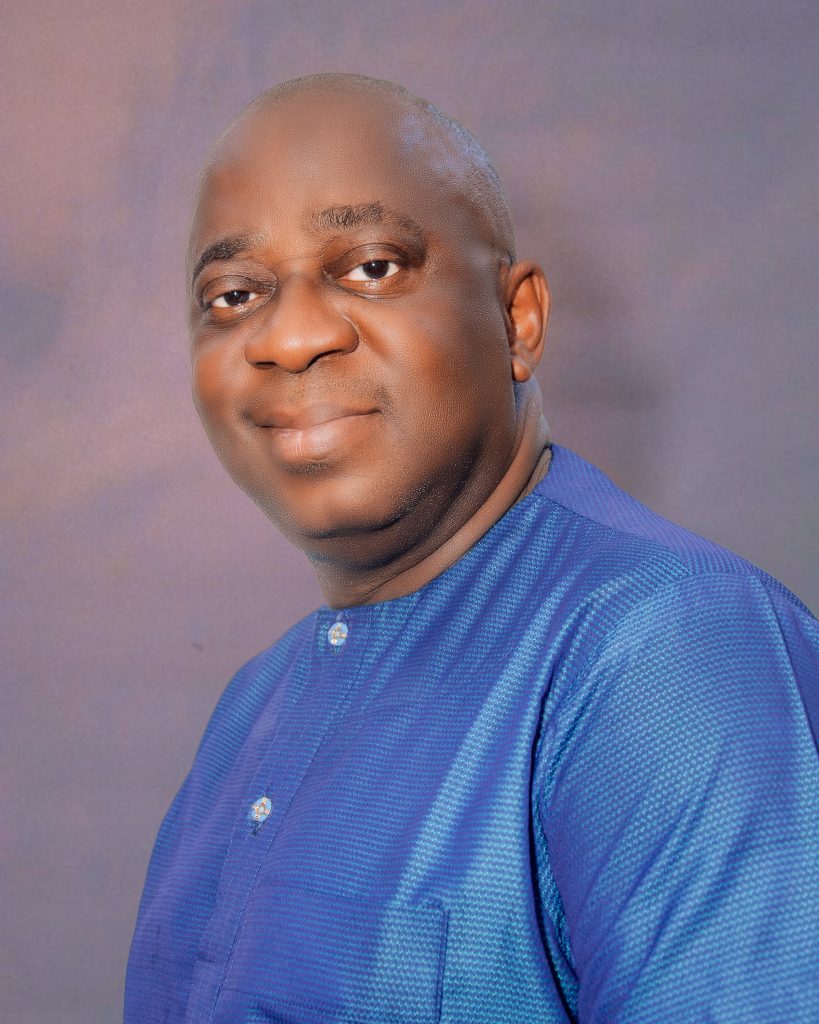 (Sighs). I have had to sacrifice a lot. In fact, if not that I managed it well, it nearly affected my family life. Because, it seemed at one point as if I was married to City People. At the early stage, I saw City People like a child that needs to be nurtured. Any product that will become successful, you have to pay the price of nurturing it to growth. Not only that, you will also have to scale it up at some point. So, I was so much committed to it and because I was enjoying what I was doing and I like journalism, I got carried away. I can be in the office, working, for 3 straight days without thinking about any other thing. Then, my social life also suffered until recently. I didn’t have time for parties because I believed that partying was just a waste of time; siting down at parties and drinking will not bring stories. But of course, that has changed now because we cover events now, you have to be there and all that. So, talking about making sacrifices for City People, I overstretched myself because I was so committed to achieving success with it. And I believed the only way to do that by giving everything I have to it. Of course it helped. Because when challenges came, when the new system that swept away most of the old media outlets came, I was able to withstand them. All I had to do was to go deeper into what I have been doing. In fact, it would have been another story if I wasn’t in tune with what I was doing.
(Sighs). I have had to sacrifice a lot. In fact, if not that I managed it well, it nearly affected my family life. Because, it seemed at one point as if I was married to City People. At the early stage, I saw City People like a child that needs to be nurtured. Any product that will become successful, you have to pay the price of nurturing it to growth. Not only that, you will also have to scale it up at some point. So, I was so much committed to it and because I was enjoying what I was doing and I like journalism, I got carried away. I can be in the office, working, for 3 straight days without thinking about any other thing. Then, my social life also suffered until recently. I didn’t have time for parties because I believed that partying was just a waste of time; siting down at parties and drinking will not bring stories. But of course, that has changed now because we cover events now, you have to be there and all that. So, talking about making sacrifices for City People, I overstretched myself because I was so committed to achieving success with it. And I believed the only way to do that by giving everything I have to it. Of course it helped. Because when challenges came, when the new system that swept away most of the old media outlets came, I was able to withstand them. All I had to do was to go deeper into what I have been doing. In fact, it would have been another story if I wasn’t in tune with what I was doing.
Apparently, you have results to show for the sacrifices and you deserve to be congratulated for that…
Thank you very much.
You have produced a great number of journalists who passed through City People in the last 29 years. How does that make you feel?
It makes me feel good and here is why. I really had not been thinking in that direction until one day I went for an event and Gbenga Adeyinka was the anchor. He was to recognize my presence and in his introduction, he mentioned that many successful journalists have come out from City People. He mentioned over 60 and I initially thought he was exaggerating, being a comedian (smiles). Eventually when I sat and cast my mind back, I realized that truly a lot of people have passed through City People; a lot of professionals that are doing well today. Some have their own platforms, others have gone into other higher businesses, some have become politicians, and so on. So, it humbles me a lot. I wasn’t conscious of it until that day. It was when I sat down to take a count by myself afterwards that I realized that the numbers are high truly.
One particular thing about you that a lot of people have also spoken about is your simple lifestyle. You are not that flashy celebrity publisher, with no airs about you. How did you about that?
Well, I think that evolves from my late mum. She had so much influence on me and she was a very humble woman in her own rights. If my late mum comes was to have met us here now, she would almost bow to greet all of us. She uses ‘E’ (Yoruba pronoun used to express respect to those older than you). As a young boy then I always wonder why she uses that word even for those who are too young to be her children. One day, I had to challenge her that mummy, why do you use that word for everyone? She only asked me a question back to get a response from me. She asked “what has that taken away from me as a person?” I answered “nothing”. She then asked again, “has it added anything to me?” I answered yes, it has added to you. Then she said I have answered the question. From that point on I knew we had to be humble in life. Humility has been part of me from childhood. The kind of upbringing our parents gave us made us to be humble, because we didn’t use to have house helps, you do things yourself. They made us to be grounded in that simple lifestyle they wanted us to imbibe. And of course, they also brought us up in such a way that they don’t encourage us to be noisy about our lifestyle, they didn’t want us to be flamboyant, to be out there and all of that. And a combination of all of these kind of shaped me into who I was. I agree with what they always say that the way you are brought up goes a long way in shaping the kind of person you are. My dad too was that kind of person; easy going, no noise, no drama, just going his way. And I have enjoyed living that kind of life. I don’t believe I have to make any noise about myself, I don’t think I must make any point. For me it’s just about knowing what you want to do do, and then get done with it. However, like you earlier mentioned, some people complain that I am too over-simple and all that. Maybe I can see what they saying because I am the one living it. I just live my life they way it appears to me and I am enjoying it.
Let’s talk about some things that have been generally attached to journalism, the 3 Ws (women, wine and wealth) which am sure you would have had your fair share of in the last 4 decades. How much share would you say you have had?
To be honest, I will say I had learnt about all of things too when I was young journalist. I was also lucky to have worked with some senior journalists who I I had seen all these things played out in their lifestyles. And I saw how it affected them positively or negatively. Once you are successful in anything you do, not only in journalism, the woman will be there, temptations will be there, the tendency to become arrogant will be there and of all that. But I have always believed that you need to be rooted in your life to know that you can get carried away by all of these. I was never carried away. Of course, I was exposed to a lot of temptations I won’t lie about that, because like you said, if you must practice this journalism well, you must let loose. And I can say that even up till now I am still a foot-loose person, always hanging around. But all that influences what I do is journalism related. So, I can say I have been able to balance all that. And you have to know that women can build and destroy. If you are lucky, you run into a woman with good intentions and you can benefit from that. I have seen some of our senior colleagues who have benefited from the support from women. And the kind of journalism we do, 90% of our fans are women. So you can’t say I won’t deal with woman. Of course, along the line some of them like you, like your reputation and want to get intimate. So, you have to know how to strike a balance. Also, one major problem that comes with this job is that you can get distracted. You and I now that on this job, you can get to sit down with a Senator, Governor or even the richest man in Africa. But if you don’t have your head well screwed up, you can get carried away. You ll be like oh yesterday, we were with Aliko, two days ago with Otedola, forgetting that these people are relating with you just because you are a journalist. They may call you their friend, even give you access to their homes, but you and I know that they are cultivating you for their own purpose. Probably when they have a story or they need you to do some things for them in the media. But some of our colleagues don’t see beyond this. The moment they don’t have any need of you again or have someone else to do such stuffs for them, then they shut the door against you. So, I have had my own share of these experiences and that has helped me to stay rooted and focused on what I do. We have so many of our colleagues who got distracted. They have left journalism to do other things, just because they got distracted by what they do and they got to run shoulders with the so called high and mighty.
When you look at the calibre of people in journalism today, what do you think of the profession?
There is no doubt that there has been a major drop in journalism. Everything is wrong with journalism today. It is no longer the journalism that you and I were brought up in. There are no stories again, people don’t want to work hard, and it’s a battle we engage in every day. Many of the stories you see this days are highly opinionated. Somebody will just sit down, because he or she doesn’t like the person he is writing about, he will just loathe everything against the person in his so called story. And I am always like if this person decides to fight back now, what will be your defense? What I am trying to say in essence is that there has been a sharp drop in the quality of journalism coming out of practically all the media houses today. Even the big names that we respect, when you see some stories coming from them at times, with some of them having to publish opologies on the front page and all that, you will see a failure of gate keeping, which is very key in journalism. Many of our guys have become lazy, some of our people no longer see a virtue in hardwork, some who call themselves journalists today don’t even know what journalism is all about. And the final straw that destroyed journalism is social media. It has gotten to a point where once you just have an android phone and data to run it, you have become a journalist. You can fill a form and call yourself a journalist or publisher. The entry point is so easy just like the exit point. Consequently, also these have really affected the media very negatively. It’s sad that those who now parade themselves as key players in the industry are not journalists in the real sense of the word.
When you sit back, relax and cast your mind back to the journey so far, do you feel fulfilled at 60?
Oh, I feel fulfilled. When I say I feel fulfilled, I am rating myself on the promises I made to myself at the beginning. Don’t forget that I started off as a writer, then I became a researcher, after that I became a reporter, then I rose through the ranks and all that. However, many of us didn’t see the social media thing coming. It caught us pants down. So, I has since made me realize that you cannot rest for now, you have to to scape up the business to another level. But my fear is as you are scaling up, new challenges are coming in, technology is bringing many things like AI and all that, and I ask myself when will that point where you can relax and say you have reached a stable level going to come? The good side to that meanwhile, is that it keeps you on your toes, you don’t become idle because there is a lot to catch up with. So, when I look back I feel happy, I feel I have been able to contribute my quota to the media and I still look forward to contributing more.
Do you feel you have been appreciated well enough for your enormous contributions to the media in Nigeria?
Well, I have a different view. I don’t look at it from the point of view of you wanting to be appreciated. My own is just just do your own bit and move on. I am also someone who asks himself do you really need them to clap for you? No, I don’t think so. All you need is just to set your goals and move on. When we tell people about what we were able to do with City People in Ghana years back, most of the new people even find it difficult to believe. How we launched City People in all the states across Nigeria, these are no mere feats that bring fulfillment. So, I don’t really like to look at it from the point of appreciation. Have we been able to make a mark with the limited resources available to us? I will say yes we have been able to built something and then the new generation coming after us can also continue to build in that.
Going by all you have said from the beginning of this interview, you seem not to have any plan to retire anytime soon?
If I retire, what will I be doing (general laughter). That’s my problem. What will I be doing really? Is it to start selling rice or what? I don’t know really. What am doing gives me fulfillment. And that’s the problem with being passionate with what you do. I am not totaling ruling out doing something else, but I have asked myself what that can be many times. Unless I will do something else that is media-related. And of course, I don’t see where retirement comes in, especially in this environment where you can’t just fall back to relax. Even if you have been able to steal of stash some money somewhere. And even at that, what is certain in this part of the world. Look at how Naira has become so worthless. So you really need to ask yourself that how much can I say I have saved that would be enough to say okay, fine, I now want to retire. I have a friend of mine. He is someone who is rich and well known. Back then, he used to say by the time he will be 40, he would have retired and move to an island where he will just be enjoying his money for the rest of his life. He is in the Senate today. In fact, I am waiting for the day I will ask him how come you have not retired after all these years since you clocked 40? The permutations have changed. Nigeria is not a place you can just plan 5 years or 10 years. The parameters are not certain. Also, getting busy and staying active with what you do keep you going, you get to maintain your relevance in the society and all that. But the moment you leave that and you say you want to go and do something else, it will be very difficult to come back. It’s like a football player who leaves the field to go and do something else, he may have lost all the skills by the time he wants to come back.
-Interview by TOPE AILERU.

